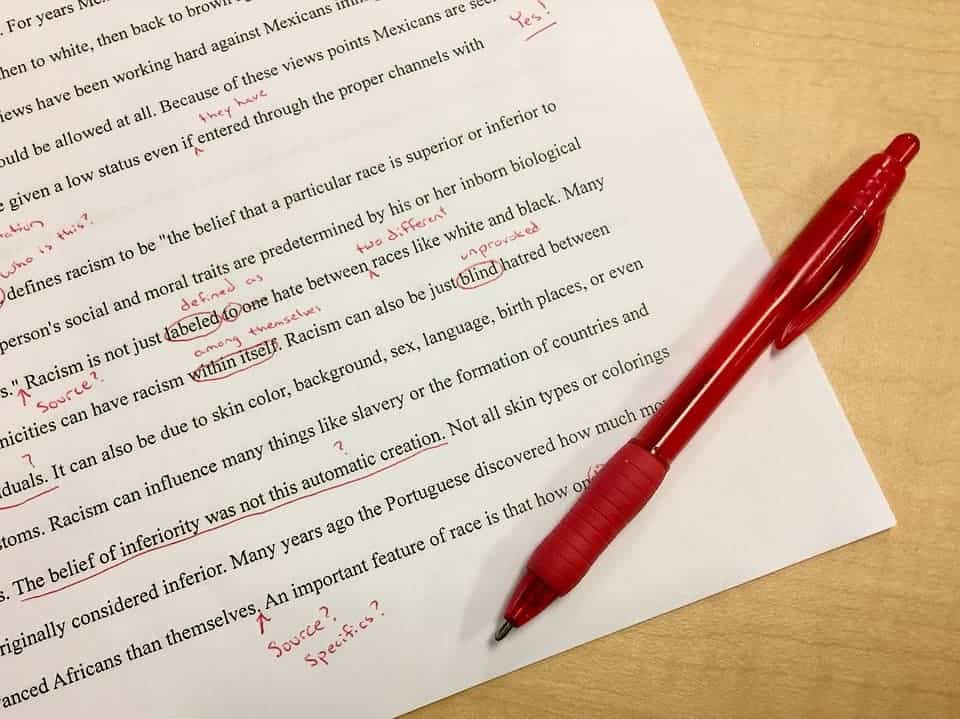With all the degrees out there, it’s quite ironic that history majors seem to go unnoticed since most people believe that this choice of study is “useless.” In social media, there are plenty of memes that tend to give history majors a bad rap. One popular joke tells students to have fun over the Spring Break after a history teacher had given them a 150-question assignment to be submitted when they walk into class on Monday. Others even say that if you pursue a degree in history, you must first consult an ophthalmologist since one should have an eye for details.
But the reality is that people with a bachelor’s degree in history have plenty of opportunities in front of them. Many career options can give them high salaries, such as teaching English. Today, this option has a high employment rate. You might be wondering now, can you be an English teacher with a history degree? Read on, and you’ll find valuable insights in this post.
 Like any other major, history classes require verbal and written communication skills because they usually debate and write persuasive essays in class, mostly in English.
While some history majors become historians, many apply the skills gained in history degree to other careers. There are Hollywood actors and federal judges who are history majors, but then end up working and enjoying a completely different profession. So, if you are interested in becoming an English teacher, check out the valuable information below.
Like any other major, history classes require verbal and written communication skills because they usually debate and write persuasive essays in class, mostly in English.
While some history majors become historians, many apply the skills gained in history degree to other careers. There are Hollywood actors and federal judges who are history majors, but then end up working and enjoying a completely different profession. So, if you are interested in becoming an English teacher, check out the valuable information below.
 Being an English teacher in the United States today is a great way to make a difference, keeping in mind the literacy problems the nation has encountered for the past years.
No matter what grade level you choose, it does not matter. All students need assistance. If you got a heart for teaching children at a younger age, work at an elementary school. On the other hand, if you want to assist those who are struggling in learning, specialize in helping children with learning disabilities. Now, if being keen about literary analysis is your forte, consider teaching an upper class.
Being an English teacher in the United States today is a great way to make a difference, keeping in mind the literacy problems the nation has encountered for the past years.
No matter what grade level you choose, it does not matter. All students need assistance. If you got a heart for teaching children at a younger age, work at an elementary school. On the other hand, if you want to assist those who are struggling in learning, specialize in helping children with learning disabilities. Now, if being keen about literary analysis is your forte, consider teaching an upper class.
 Unlike public schools, they are running their school boards and organizations.
Charter schools like public schools require no fees, and they run independently. It is more flexible regarding their operations because they are held at higher accountability for better performance. This kind of school is usually smaller and more selective. Hence, it may have more additional requirements for English teachers.
English is the universal language. It has been the common tongue of people across the globe. Meaning, teaching English is truly rewarding. The said language alone can take you in many places and open up exciting avenues for you and your students.
Have you gone reading the whole article? Being an English teacher will not cost you an arm and a leg. It is one of the cheapest but “worth the wait” programs in college. If you happened to be a History degree holder and suddenly felt the need to shift, always include being an English teacher in your list. Enlisting the skills acquired in your whole History degree can make all the difference.
Lastly, why not consider alternative degrees such as History AND English or Law?
Unlike public schools, they are running their school boards and organizations.
Charter schools like public schools require no fees, and they run independently. It is more flexible regarding their operations because they are held at higher accountability for better performance. This kind of school is usually smaller and more selective. Hence, it may have more additional requirements for English teachers.
English is the universal language. It has been the common tongue of people across the globe. Meaning, teaching English is truly rewarding. The said language alone can take you in many places and open up exciting avenues for you and your students.
Have you gone reading the whole article? Being an English teacher will not cost you an arm and a leg. It is one of the cheapest but “worth the wait” programs in college. If you happened to be a History degree holder and suddenly felt the need to shift, always include being an English teacher in your list. Enlisting the skills acquired in your whole History degree can make all the difference.
Lastly, why not consider alternative degrees such as History AND English or Law?
A Promising Future for Professionals with a Degree in History
Acquiring a degree in history requires the use of analytical skills, especially when writing research papers. Of course, they need to integrate their conclusions into an argument supported by evidence. Like any other major, history classes require verbal and written communication skills because they usually debate and write persuasive essays in class, mostly in English.
While some history majors become historians, many apply the skills gained in history degree to other careers. There are Hollywood actors and federal judges who are history majors, but then end up working and enjoying a completely different profession. So, if you are interested in becoming an English teacher, check out the valuable information below.
Like any other major, history classes require verbal and written communication skills because they usually debate and write persuasive essays in class, mostly in English.
While some history majors become historians, many apply the skills gained in history degree to other careers. There are Hollywood actors and federal judges who are history majors, but then end up working and enjoying a completely different profession. So, if you are interested in becoming an English teacher, check out the valuable information below.
Can You Be an English Teacher with a History Degree? You Can If You Have Any of the Following!
- A Bachelor’s Degree in English or related subject which includes a teacher preparation program
- A complete student teaching internship in English and related disciplines, such as reading and literature
- A state’s test teacher certification
- A teacher’s license
Additional Tips that Can Help You Pursue a Career in Teaching English
Are you wondering how long it will take you to become a certified English teacher? Time varies drastically, mostly based on students’ age and education level. Apparently, the older the pupils, the longer it takes for aspiring teachers to be work-ready. Four years will do, including the time to earn a minimum degree and certification requirements. In some states, a teaching degree may not be a requirement, per se, but you will need a degree to teach. Wanting to dedicate your career to teaching English may lead you to pick a major that coincides with the level of education or specialty (for higher grade levels) that pricks your interest.How Can You Be an English Teacher with a History Degree?
Letting random strangers teach students is like allowing anyone to perform brain surgery. The thing is, how can you get a teaching certificate or license? First and foremost, obtain a relevant bachelor’s degree. Second, complete a district-or state-approved teacher preparation program. Third, take and pass the exams required by the school district or state. Lastly, submit a state teaching license application.How about Job Hunting?
Start searching for English teaching jobs like a pro. It is said that the easiest way to look for open positions is by using general job search engines. Among the popular job search boards are Indeed, LinkedIn Job Search, Handshake, or Glassdoor. Still, the best option lies within the specific online portals of schools and districts. Look for the school district, then, try identifying which is an excellent place to understand all the cities and schools located within. Commonly, the school district page itself has job listings, although it could be administrative or managerial. To save your time, find the specific website for school in question. It’s worth noting that having a particular school in mind can help you personalize your efforts in making a resume and cover letter. Your resume must look like a one-stop-shop. List your teaching experience and certifications to be purchased, figuratively. Review some teacher’s cover letter so you will know how to grab the principal’s attention. Here’s the tip: most public-school districts require a master’s degree and a minimum amount of continuing education hours, so do not just stop with a bachelor’s degree.A Remarkable Tip for Your Job Interview
Ace the English teaching interview by answering more than the basic interview questions. To do that, you need to know specific teaching interview questions and answers. Furthermore, reading about situational interview questions, information interview questions, and behavioral interview questions will somehow help you lessen the drum rolls in your chest. Writing a thank you letter after the interview is not a requirement, but it can serve as your trademark.From a History Major to an English Teacher, How to Make that Successful Leap
A genuine love for words and literature is key to a successful career path as an English teacher. If you do not possess this characteristic, granted, you will be having a hard time balancing your success and stress level. Typical English salaries depend on factors such as years of experience, level of education, and location. Perse, if you are teaching in areas with a lower cost of living, you will be receiving a lower salary than in more expensive areas. Being an English teacher in the United States today is a great way to make a difference, keeping in mind the literacy problems the nation has encountered for the past years.
No matter what grade level you choose, it does not matter. All students need assistance. If you got a heart for teaching children at a younger age, work at an elementary school. On the other hand, if you want to assist those who are struggling in learning, specialize in helping children with learning disabilities. Now, if being keen about literary analysis is your forte, consider teaching an upper class.
Being an English teacher in the United States today is a great way to make a difference, keeping in mind the literacy problems the nation has encountered for the past years.
No matter what grade level you choose, it does not matter. All students need assistance. If you got a heart for teaching children at a younger age, work at an elementary school. On the other hand, if you want to assist those who are struggling in learning, specialize in helping children with learning disabilities. Now, if being keen about literary analysis is your forte, consider teaching an upper class.
Skills and Qualities an English Teacher Must Possess
- Ability to relate to pupils and their parents
- Enthusiasm for the subject you are teaching
- Depth knowledge in the subject area and relevant curriculum
- Covey knowledge in an engaging way
- Confidence in your ability to teach
- Capacity to be a good role model even when tired or under pressure
- Exceptional organizational skills in terms of pupils’ needs, lesson preparation, assessments, and discipline
- Dedication, resilience, and commitment
- Ability to reflect on their experiences
- Constantly learning and improving
- Integrity, enabling students, parents, teachers and other stakeholders to trust you as a teacher
- A good sense of humor
Additional Information
Public schools are free for all students. According to law, every school is mandated to admit any student who lives in the district, as long as enrollment permits. Generally, public schools have diverse student populations. The teachers there are strictly following the curriculum that has been established by the local school district. They also administer standardized tests wherein results can affect the fund to be given by the government. On the other hand, private schools are autonomous of the government; hence, tuition is a requirement. Unlike public schools, they are running their school boards and organizations.
Charter schools like public schools require no fees, and they run independently. It is more flexible regarding their operations because they are held at higher accountability for better performance. This kind of school is usually smaller and more selective. Hence, it may have more additional requirements for English teachers.
English is the universal language. It has been the common tongue of people across the globe. Meaning, teaching English is truly rewarding. The said language alone can take you in many places and open up exciting avenues for you and your students.
Have you gone reading the whole article? Being an English teacher will not cost you an arm and a leg. It is one of the cheapest but “worth the wait” programs in college. If you happened to be a History degree holder and suddenly felt the need to shift, always include being an English teacher in your list. Enlisting the skills acquired in your whole History degree can make all the difference.
Lastly, why not consider alternative degrees such as History AND English or Law?
Unlike public schools, they are running their school boards and organizations.
Charter schools like public schools require no fees, and they run independently. It is more flexible regarding their operations because they are held at higher accountability for better performance. This kind of school is usually smaller and more selective. Hence, it may have more additional requirements for English teachers.
English is the universal language. It has been the common tongue of people across the globe. Meaning, teaching English is truly rewarding. The said language alone can take you in many places and open up exciting avenues for you and your students.
Have you gone reading the whole article? Being an English teacher will not cost you an arm and a leg. It is one of the cheapest but “worth the wait” programs in college. If you happened to be a History degree holder and suddenly felt the need to shift, always include being an English teacher in your list. Enlisting the skills acquired in your whole History degree can make all the difference.
Lastly, why not consider alternative degrees such as History AND English or Law? 
